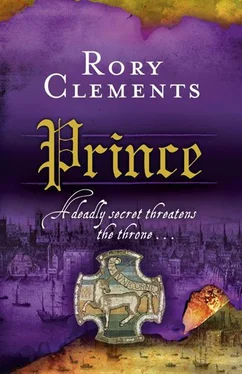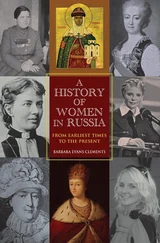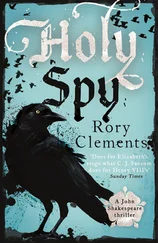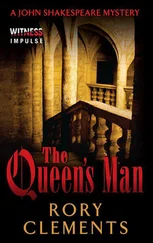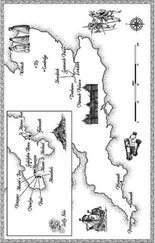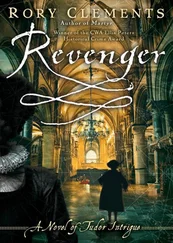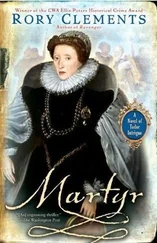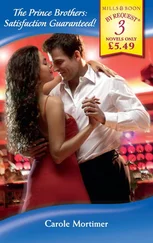Rory Clements - Prince
Здесь есть возможность читать онлайн «Rory Clements - Prince» весь текст электронной книги совершенно бесплатно (целиком полную версию без сокращений). В некоторых случаях можно слушать аудио, скачать через торрент в формате fb2 и присутствует краткое содержание. Жанр: Исторический детектив, на английском языке. Описание произведения, (предисловие) а так же отзывы посетителей доступны на портале библиотеки ЛибКат.
- Название:Prince
- Автор:
- Жанр:
- Год:неизвестен
- ISBN:нет данных
- Рейтинг книги:5 / 5. Голосов: 1
-
Избранное:Добавить в избранное
- Отзывы:
-
Ваша оценка:
- 100
- 1
- 2
- 3
- 4
- 5
Prince: краткое содержание, описание и аннотация
Предлагаем к чтению аннотацию, описание, краткое содержание или предисловие (зависит от того, что написал сам автор книги «Prince»). Если вы не нашли необходимую информацию о книге — напишите в комментариях, мы постараемся отыскать её.
Prince — читать онлайн бесплатно полную книгу (весь текст) целиком
Ниже представлен текст книги, разбитый по страницам. Система сохранения места последней прочитанной страницы, позволяет с удобством читать онлайн бесплатно книгу «Prince», без необходимости каждый раз заново искать на чём Вы остановились. Поставьте закладку, и сможете в любой момент перейти на страницу, на которой закончили чтение.
Интервал:
Закладка:
‘Playing at cards,’ Poley said. ‘Smoking sotweed and drinking good ale.’ He nodded towards the now empty ale jugs. ‘Eating, too. Ellie Bull roasts a fine head of young pig and most excellent sweetmeats.’
‘Do you speak for all, Mr Poley? The question was for Mr Frizer.’
‘We were all here — I was just answering your question.’
‘Well, don’t, unless a question is asked of you.’ He turned once more to Frizer. ‘So where, pray, are the playing cards?’
Frizer looked blankly at Shakespeare, then nervously towards Poley. ‘I — they-’
‘I have them here,’ Poley said, fetching a pack from his doublet. ‘If I am permitted to speak, that is.’
‘Put them over there, by the dagger.’
Poley ambled over to the table and fanned the cards out with a final, crisp flick for the last one. He smiled at Shakespeare. ‘Might I know your interest in this sorry affair, Mr Shakespeare? It is naught but an everyday manslaughter and we were told to wait for coroner Danby. We have all stayed here in the proper way of things; none has attempted flight. What possible interest can this occurrence, tragical though it be, have for such an eminent a servant of the Crown as Mr John Shakespeare, senior secretary to Sir Robert Cecil?’
Shakespeare ignored the question. He was here because this was most decidedly his business. He had been investigating Marlowe on the orders of Cecil and a special Privy Council commission of inquiry. Marlowe had been suspected of involvement in an unsavoury episode — a vicious written attack on the many foreigners now living in London. A placard posted outside the Dutch church in Broad Street insulted England’s Protestant friends from the Low Countries and France who had sought refuge here. Marlowe’s style seemed to be writ all over the poster: fifty-three lines of seditious doggerel — and not just insults and threats to slit the incomers’ throats, but strong criticism of the Queen and her government for allowing them to come here.
And why, specifically, was Marlowe a suspect? Because the placard was signed Tamburlaine — the heathen warrior king of his most celebrated play.
Yes, thought Shakespeare, this death was most certainly of interest.
‘You,’ he said brusquely, turning to Skeres. ‘Who else was here?’
Unlike Frizer, Skeres had enough presence of mind not to glance towards Poley for guidance. But he was sweating heavily, even though the warmth of the day was long since turned to evening chill. ‘Us three and Marlowe. That’s all.’
‘What is your name?’
‘Skeres. Nick Skeres.’
‘Who is your master?’
‘I am my own man. I have property. My family is in the cloth trade — drapers, tailors.’
Shakespeare had heard the name Skeres before. Like Poley, he had worked for Walsingham occasionally. His presence in this room stank of rancid fat.
‘Sweat pours from you like a heavy rainfall, Mr Skeres. Are you afraid of something?’
‘A man has died here. What Christian would not be shaken, sir?’
‘Indeed.’
‘Would you like me to tell you exactly what happened, Mr Shakespeare?’ Poley asked, his face a guileless mask.
‘Save it for the coroner, Mr Poley. I am sure you have it well rehearsed…’
The door creaked open. All eyes turned to see the slim figure of Joshua Peace entering the room. Shakespeare smiled in greeting and stepped forward to clasp his hand. ‘Thank you for coming, Joshua. It is good to see you.’
‘What’s he doing here?’ Poley burst out.
‘Mr Peace? He is here to examine the body and the scene of the crime — if there was a crime, of course. We must not pre-judge these matters, Mr Poley.’ Shakespeare studied Poley’s face, but the man had recovered himself.
Peace strode towards the corpse, barely acknowledging the three witnesses. For a few moments he stood and stared at the dead face. ‘Marlowe, eh? A fair playmaker in his day. Smells like a taproom in here.’ Peace, the Searcher of the Dead, was a man in his mid to late thirties. His eyes shone with wit and humour, yet you would pass him in the street and not note him. He was almost bald save for a thin circle of brown hair that always reminded Shakespeare of a monk’s tonsure.
The Searcher rolled back his sleeve, then slid his right hand and forearm inside Marlowe’s bloody doublet. He held it there against the dead man’s still chest, the tips of his fingers in the armpit, for a full minute. At last he withdrew his hand. ‘How long do you think he’s been dead, John?’
‘This crew of villains say he died at six — so that’s three hours.’
Peace shook his head. ‘No, five at least. Perhaps even six hours gone. He died between three and four of the clock.’
‘Well, Mr Skeres, what do you say to that?’
‘It’s all lies-’ Poley broke in.
Shakespeare thrust the palm of his hand into Poley’s face, smacking his head against the wall to stop his mouth. ‘Learn some manners, Mr Poley. Speak when you are spoken to.’ He held Poley there, pinioned. ‘Now, Mr Skeres, if you please.’
‘Six of the clock. He died at six hours.’
Peace picked up the dagger and examined it. He held its tip to the wound over the eye, then slipped it slowly through the gore, four inches into the depths of Marlowe’s head without resistance. ‘Well, this is most certainly the weapon that inflicted the wound. A common enough assassin’s strike, I would say.’
‘It was an accident!’ Poley shouted, wrenching his mouth from Shakespeare’s grasp. ‘It was a brabble. God’s wounds, look at Mr Frizer’s head. Look what Marlowe did to him first.’
Shakespeare pushed Poley’s head back against the wall. ‘Speak again unbidden and I will relieve you of your teeth, Mr Poley,’ he said, then released his grip. Poley wiped his sleeve across his mouth.
For the next ten minutes the Searcher examined the body in silence, looking for other wounds or evidence of poisoning. He opened Marlowe’s mouth and peered inside, then spent some time over his right hand, which was clearly injured. After his examination of the corpse he turned his attention to the living men. He made Frizer stand still while he looked at the wounds on his head. He took notes on the spread of blood across the body of the corpse and the killer. He also examined the garments and heads of the other two men for signs of injury or blood drops. At last he stood back from his work and gazed at Shakespeare.
‘Well, Joshua?’
‘I have no doubt that the stab to the eye killed him, though from the stench of him you might surmise he had drowned in ale. The blade penetrated the brain and brought forth a great rush of blood. There is no evidence of any other lethal injury, nor poison. The blood on that man — ’ he nodded towards Frizer — ‘makes it quite clear that he wielded the knife.’
‘Could it have been self-defence?’
‘Yes.’
‘And could the injuries inflicted on the knifeman, Frizer, have been caused by an attack by Marlowe?’
‘Again, yes. Or by anyone else who happened to be in the room. I would add, John, that Marlowe’s finger is interesting. The middle one of the right hand has been injured in some way. The knuckle was torn at about the time of death.’
‘From landing a punch, Joshua?’
Peace hesitated. ‘Most likely, yes. Although…’
‘Although what?’
‘No, nothing. It’s pointless to surmise.’
‘But I would be glad if you would anyway.’
‘Well, the injury is really quite severe. The bone is visible. One might think the knuckle and the forejoint of the finger had been scraped by a rough edge of iron. More than that I cannot say.’
Shakespeare stepped forward and examined Marlowe’s fingers himself, then turned back. He held up the limp hand. ‘Well, Mr Poley — how do you explain this injury?’
Читать дальшеИнтервал:
Закладка:
Похожие книги на «Prince»
Представляем Вашему вниманию похожие книги на «Prince» списком для выбора. Мы отобрали схожую по названию и смыслу литературу в надежде предоставить читателям больше вариантов отыскать новые, интересные, ещё непрочитанные произведения.
Обсуждение, отзывы о книге «Prince» и просто собственные мнения читателей. Оставьте ваши комментарии, напишите, что Вы думаете о произведении, его смысле или главных героях. Укажите что конкретно понравилось, а что нет, и почему Вы так считаете.
